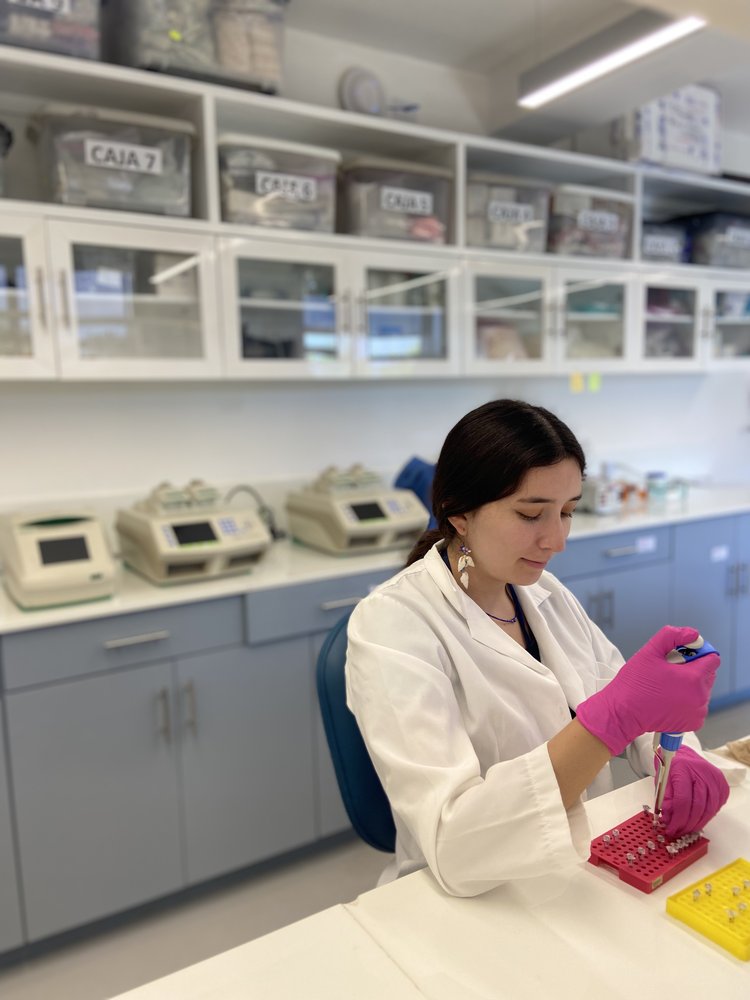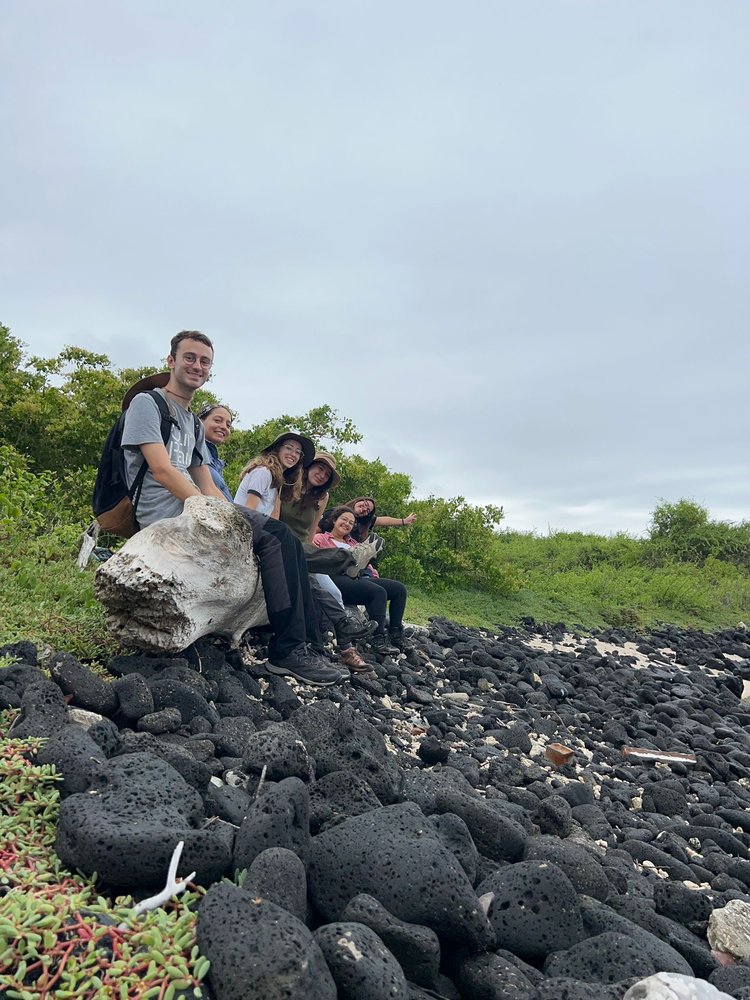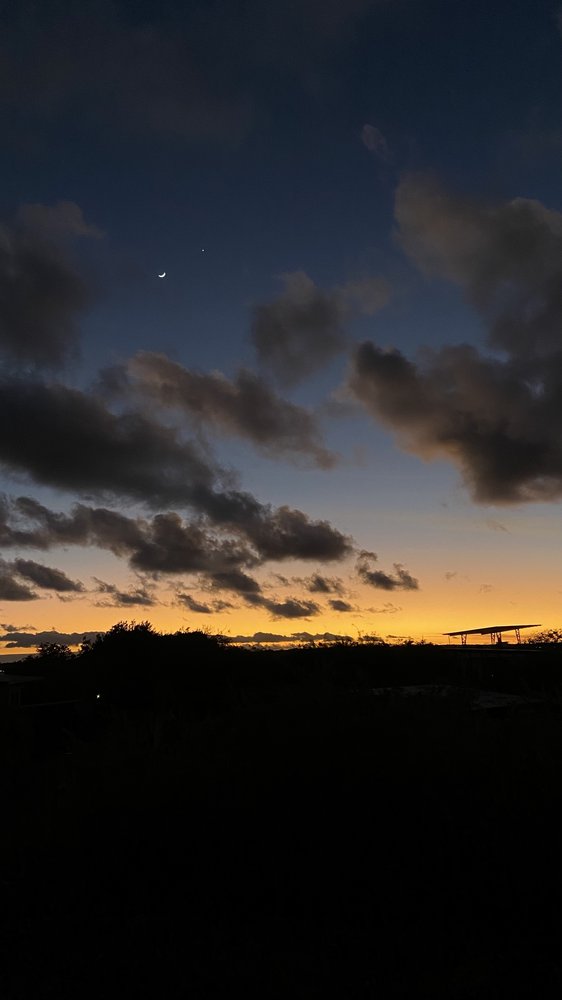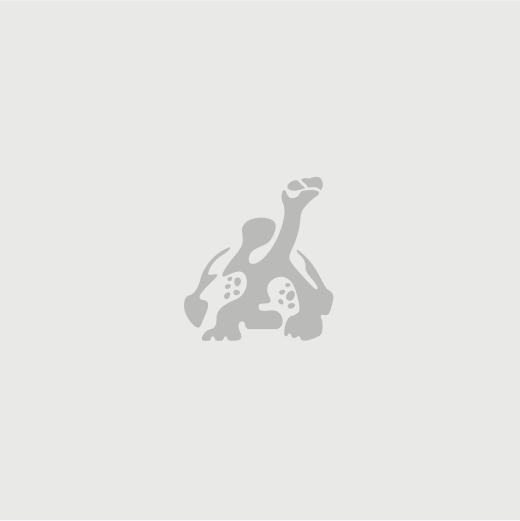Today, I find myself here, by the sea, writing about my experience living on an island. It all started when I was searching for an opportunity, and I found a living dream instead: volunteering in the Galápagos. I applied to the Landbird Conservation Program of the Charles Darwin Foundation and had the privilege of becoming part of their team.
The program seeks to ensure the conservation of Galápagos' small landbird populations, safeguarding the overall health of the islands. My knowledge as a biotechnologist proved useful in standardizing protocols and processing samples in the laboratory. I used molecular techniques such as the Polymerase Chain Reaction (PCR) test, widely recognized for its use during the pandemic, but in my case, it was employed to identify infectious agents in landbirds.
Doing science means learning, unlearning, trying, and trying again. It is utopian to think that everything will work perfectly on the first attempt, and that is the real challenge. Standardizing protocols has its own rhythm, and although it can sometimes be frustrating, knowing that my work directly contributed to advancing the project and protecting Galápagos' unique species made it all immensely rewarding.
Although my natural role as a biotechnologist takes place in the laboratory, from the beginning, I was eager to get involved in fieldwork as well. Thanks to the openness and trust of my mentors, I had the opportunity to go into the field and collect samples from species unique to this world to later process them on my own in the lab. Crossing the boundaries of the test tube and immersing myself in nature led me to volcanic terrains, the intense heat of Cerro Fatal, and learning from experts with a sharp eye for identifying bird species in mere seconds.

Crossing the boundaries of the test tube and immersing myself in nature led me to volcanic terrains, the intense heat of Cerro Fatal, and learning from experts with a sharp eye for identifying bird species in mere seconds.
What made this experience transcend the professional sphere were the people. Living with volunteers from different cities in Ecuador and around the world transformed my days. Each person, with their area of expertise, not only enriched my understanding of conservation work but also my personal life. The bond created in the volunteer house cannot be replicated. These were the people I shared every day since the first moment I arrived. My mornings wouldn’t start without hearing their laughter from my room.
Living with them was very special, and the fact that it all happened in this World Heritage Site made it even more fascinating. Playing frisbee in the Eden Park, experiencing Puerto Ayora’s culture on Fridays when its streets get closed, going up to Bellavista for the best chocolate bread, exploring the island's hidden gems every weekend, swimming at the beach every morning, eating empanadas at the market, and contemplating starry nights with the sound of waves in the background became our island routine.

I deeply admire the work of the entire staff, but when it comes to the volunteers, the effort each of us put into carry out the projects is simply impressive. We are here out of love for nature. I have always thought that volunteering is the tangible evidence of the purest vocation. That’s why I find it essential to continue implementing initiatives that attract passionate people eager to learn and contribute to conservation.
Gis, Ainoa, and Birgit were my mentors, who warmly took me in throughout this journey. I cannot help but express how profoundly gratifying it has been to work alongside these inspiring women in science, whose humanity, shining as brightly as their knowledge, showed me that people are much more than their work. This completely shifted my perspective on the academic and research life that many of us are accustomed to.
No word better defines my stay here than gratitude. My heart is filled with the enthusiasm of every person I had the privilege to work with and their generosity in sharing their years of experience dedicated to the conservation of the archipelago.
I take with me the view of the sea from the laboratory, sunsets from the house’s entrance, trips to the dock to spot sharks, but most importantly, I take with me an enduring desire to return.
Do you want to make an impact? Since 1971, the Charles Darwin Foundation has welcomed passionate volunteers from around the world—and you could be next! Join this essential team that works to protect this unique paradise. Explore the available positions on our page and send your complete application to vol@fcdarwin.org. Questions? Write to us or call us at +593 (0)5526-146 or +593 (0)527-013/014, ext. 338.
Your contribution can shape the future of this Enchanted Islands






